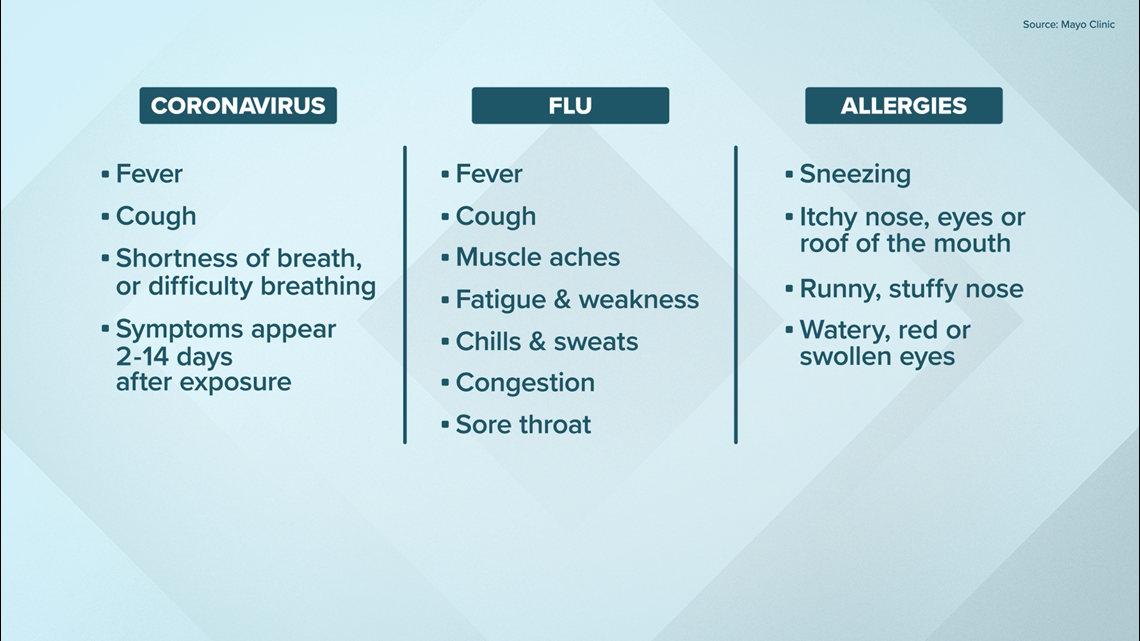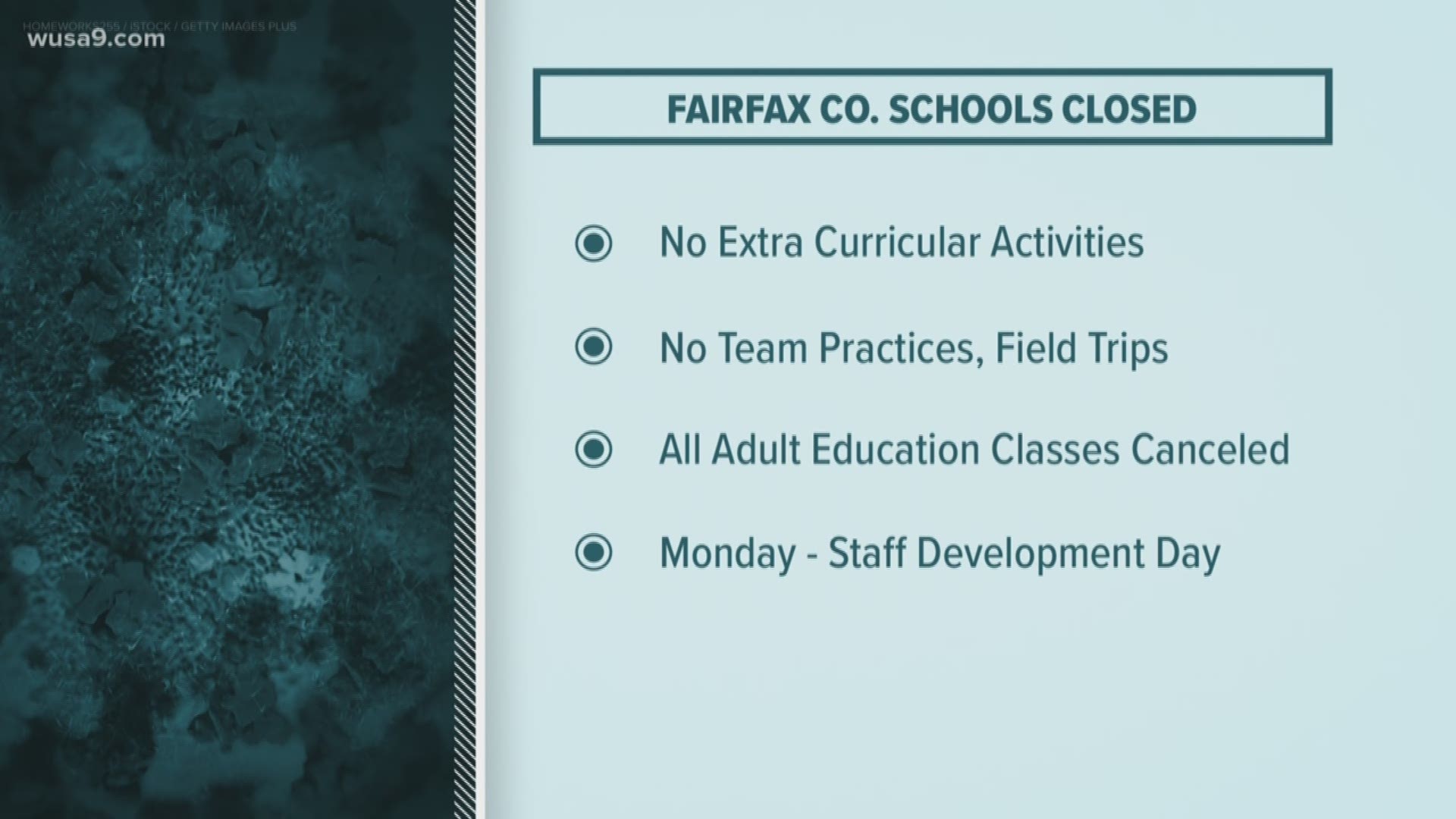WASHINGTON — As the global pandemic spreads across the country, and the DMV specifically, know the symptoms of the coronavirus and how they differ from the flu and allergies.
Symptoms of COVID-19
Commonly reported symptoms of COVID-19 infection include:
- Fever
- Cough
- Shortness of breath
- Pneumonia
While the exact incubation period for this coronavirus has not yet been determined, it is believed that most infected people will develop symptoms 2-14 days after they were exposed.
D.C. Health officials say that if you feel that you may have coronavirus and need to go to a health care provider, that you should contact the health care provider beforehand so they can be prepared to handle your arrival safely.
RELATED: What are coronavirus symptoms?


What to do if you have coronavirus symptoms?
If you are sick or suspect you are infected, the Centers for Disease Control and Prevention recommends taking the followings steps:
- Stay home except to get medical care
- Avoid public areas, including work or school
- Avoid public transportation
- Separate yourself from other people and animals in your home
The CDC also says you should call ahead before visiting your doctor, and to wear a facemask if you are sick around other people or pets.
Transmission
Many of the patients in the pneumonia outbreak caused by COVID-19 in Wuhan, China had some link to large seafood and live animal markets, suggesting animal-to-person spread. However, person-to-person spread is now widely occurring.
RELATED: Maryland coronavirus update: Public schools will be closed, community transmission reported
Prevention
There is no vaccine available for COVID-19. In general, people can protect themselves and others against respiratory viruses by taking the following precautions:
- Wash your hands frequently with an alcohol-based hand sanitizer or soap & water.
- Cover your mouth and nose while coughing or sneezing.
- Avoid close contact with people who are sick.
- If you are sick, stay home from work or school.
- Avoid touching your eyes, nose, or mouth with unwashed hands.
- Practice good health habits.
RELATED: Why we're closing schools, avoiding events, and suspending the NBA season to stop the coronavirus
Treatment
People with COVID-19 should receive supportive care. There is no specific antiviral treatment for this illness.
Centers for Disease Control and Prevention resources:
Other Resources:
Check the current status of the virus in your state with the state health department website below:

